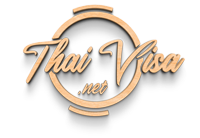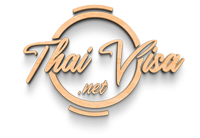The Destination Thailand Visa (DTV) is a new initiative launched by the Thai government in 2024 to attract long-term visitors, including remote workers, digital nomads, and individuals interested in cultural and educational experiences. This visa is part of Thailand’s broader strategy to enhance tourism and support the evolving landscape of global work and travel.
1. Program Overview and Objectives
The DTV aims to facilitate extended stays for various types of travelers, moving beyond traditional tourism. It focuses on attracting individuals who contribute to the local economy through long-term stays, remote work, and participation in cultural programs.
Key Objectives:
- Promote Thailand as a hub for digital nomads and remote workers.
- Encourage participation in Thai cultural and educational programs.
- Support economic growth by attracting long-term foreign visitors.
2. Key Features and Eligibility
Duration and Validity
- Initial Validity: The DTV is a 5-year multiple-entry visa.
- Stay Duration: Each entry allows a stay of up to 180 days, with an option to extend for an additional 180 days. This means a total continuous stay of up to 360 days before a brief exit is required.
Eligibility Criteria
- Remote Workers:
- Proof of employment or self-employment with a foreign company.
- Demonstration of a consistent income stream.
- Cultural Participants:
- Individuals enrolling in programs such as Thai cooking classes, Muay Thai training, or language courses.
- Attendance at cultural or educational seminars and workshops.
- Financial Requirements:
- Applicants must show proof of financial stability, typically a minimum of 500,000 THB (approximately $15,000 USD) in savings or income.
3. Application Process
Step 1: Document Preparation
Applicants need to provide:
- A valid passport (with at least 6 months of validity).
- Evidence of remote employment or registration in cultural/educational programs.
- Financial statements demonstrating sufficient funds.
Step 2: Submission
- Applications can be submitted at Thai embassies and consulates.
- An online e-visa portal is expected to streamline this process in the near future.
Step 3: Approval and Visa Issuance
After document verification, approved applicants receive a 5-year multiple-entry visa. Extensions for 180-day increments are processed within Thailand.
4. Benefits of the Destination Thailand Visa
Extended Stay Flexibility
The DTV allows visitors to enjoy Thailand for extended periods without the frequent renewals associated with tourist visas. This suits remote workers, retirees, and cultural enthusiasts who want to immerse themselves in Thai life.
No Work Permit Required for Remote Jobs
Unlike other visa categories, the DTV permits remote work for foreign employers without needing a Thai work permit. This is a significant advantage for digital nomads.
Family Inclusion
Dependents, such as spouses and children under 20, can be included in the primary applicant’s visa, fostering an environment for families to live and work in Thailand together.
5. Comparison with Other Thai Visas
- Tourist Visa: Typically valid for 60 days with a 30-day extension, focusing on short-term visitors.
- SMART Visa: Targets investors and highly skilled professionals but requires strict qualifications.
- Thailand Privilege Visa: A luxury option with high costs, tailored for wealthy individuals and retirees.
The DTV fills a niche for mid-range travelers who want a balance between cost, stay duration, and flexibility.
6. Challenges and Considerations
Financial Commitment
The requirement to show substantial savings may be a barrier for some applicants.
Regulations on Cultural Participation
Applicants engaging in cultural or educational programs must comply with specific conditions, and adherence is monitored to prevent visa misuse.
Limited Work Rights
While remote work is allowed, local employment still requires a separate work permit, limiting opportunities for on-the-ground employment.
Conclusion
The Destination Thailand Visa represents a forward-thinking approach to modern travel needs, catering to digital nomads, remote workers, and cultural enthusiasts. By offering extended stays with flexible conditions, Thailand positions itself as a prime destination for those seeking to combine work and leisure in a culturally rich environment. Understanding the visa’s structure and requirements ensures a smooth application process and a rewarding experience in the Kingdom of Thailand.


